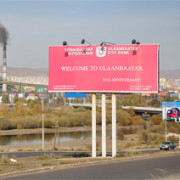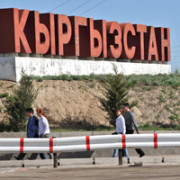Archive | April, 2014
Finance sector development
 Regional cooperation and integration
Regional cooperation and integration
 Regional cooperation and integration
Regional cooperation and integration

E-commerce in Asia brings international price arbitrage opportunities

Cross-border e-commerce is booming in the Asia and Pacific region. And exchange rate fluctuations play a key role in these transactions. In their quest for the best deals, consumers in the region are taking advantage of exchange rate movements, and shop abroad whenever the exchange rate is favorable. Our research proves that short-term international price arbitrage is occurring—an important finding for monetary policy and the private sector.
Development via regional integration – Mongolia’s chance for a prosperous future

Regional integration offers Mongolia the opportunity for a more prosperous future. But the country has lagged in this effort, which is surprising given its geographical location where bold integration initiatives have been launched, such as the People’s Republic of China’s (PRC) “Silk Road Initiative,” and where economic alliances have been strengthened under Central Asia Regional Economic Cooperation (CAREC) and Shanghai Organisation for Cooperation (SCO).
Is regional economic integration in Central Asia a doomed vision or a promising future?

Central Asia has for centuries been seen as a neglected Russian “backyard,” but international interest in the region has increased over the last two decades because of its vast stores of energy and natural resources. But to achieve a brighter future the region must pursue economic integration. In the early 1990s, Kazakhstan, Kyrgyz Republic, Tajikistan, Turkmenistan, and Uzbekistan became independent countries with the collapse of the Soviet Union. The abrupt separation from Moscow, the sudden interruption of economic relations under the Soviet Union, and the unprepared transition from state-directed to market economy created a deep economic crisis in all five countries. The beginning of this century saw their economic systems change and stabilize—but this occurred as these countries disclosed strong authoritarian trends.


Search
Subscribe / Connect to Asia Pathways
Subjects
- Agriculture and natural resources
- Blog
- Capacity development
- Climate change
- Economics
- Education
- Energy
- Environment
- Finance sector development
- Gender
- Governance and public sector management
- Health
- Industry and trade
- Information and Communications Technology
- Infrastructure
- Miscellaneous
- Population
- Poverty
- Private sector development
- Regional cooperation and integration
- Sanitation
- Social development and protection
- Transport
- Uncategorized
- Urban development
- Video Blog
- Water
Recent Posts
- Artificial intelligence: A new driver for inclusive growth and development?
- Increasing trust in cross-border e-commerce and artificial intelligence
- Enhancing access to maternal and newborn healthcare in developing Asia
- Can electric vehicles lead the way to a sustainable future?
- Mitigating climate-related sovereign risk to accelerate action on the climate emergency




Recent Comments